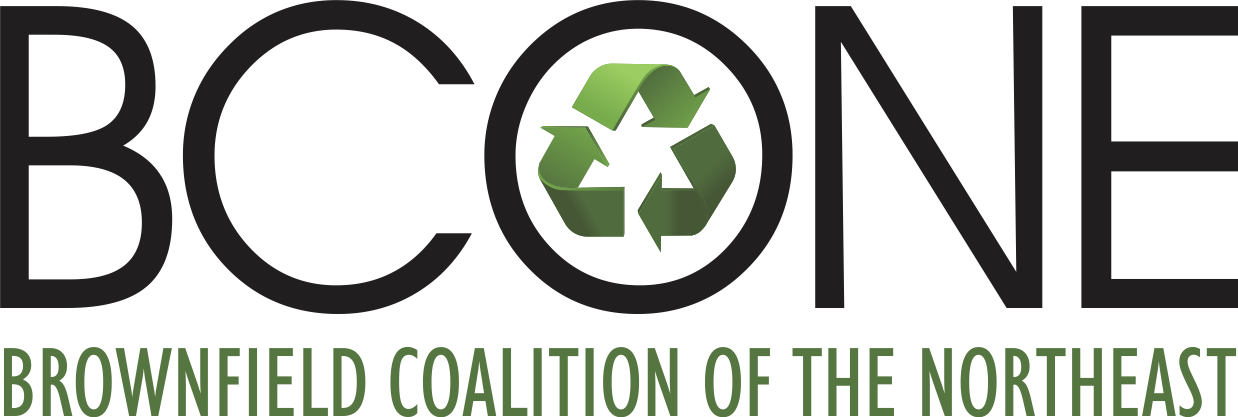By Steve Dwyer
The first order of business is to take a long perusal of the BCONE website, where you’ll find some new and dynamic features that populate the site across widgets such as Events, NSCW, News/Resources, Scholarships, Memberships and Members Only functions.
Next, you might subtlely notice more local and state officials establishing a greater interest in BCONE. This is not by accident: The outreach is picking up thanks to efforts by the BCONE Marketing and Communications Committee to build a bridge to local officials, where more and more ultimately view BCONE as a trusted resource—even partner—in the effort to improve local urban redevelopment fortunes.
These BCONE Marketing efforts are being carried out by the organization’s skillful Marketing and Communications Committee, which is oversee by…a New Jersey hydrogeologist. Wait, what?
 Yes indeed, Jeffrey S. Campbell, PG, LSRP and partner with Peak Environmental LLC, East Brunswick, N.J., might have a BS in geology from Long Island University and graduate studies degree in hydrogeology from University of Rhode Island -- and has established a solid career in this vital area. But, marketing is one of his side passions.
Yes indeed, Jeffrey S. Campbell, PG, LSRP and partner with Peak Environmental LLC, East Brunswick, N.J., might have a BS in geology from Long Island University and graduate studies degree in hydrogeology from University of Rhode Island -- and has established a solid career in this vital area. But, marketing is one of his side passions.
Campbell has an affinity for strategizing around marketing and social media, and BCONE is a beneficiary of those skills. The chairman of the Marketing and Communications Committee, Campbell has served on it since 2019. He was the most recent installation to the BCONE board of directors, sworn in at the October meeting.
We caught up with Jeff, a resident of Point Pleasant, N.J., recently to discuss his affiliation with BCONE, plans for 2022, as the Marketing and Communications Committee chairman, and much more.
Q: When did your affiliation with BCONE start?
A: I had been a member for awhile, where there was always general interaction. In my day job at Peak Environmental we rode [BCONE’s] coat tails when it came to being out in front of industry regs, incentives—those kinds of things. About three years ago someone at BCONE asked me to get on a committee, and I became a co-chair on Marketing and Communications and eventually to chairman. Prior to that, in 2018-19, I was given committee options that were available, and Marketing made a lot of sense. In the summer of 2021, I received an email alerting me to board nominations that were coming. I thought it was essential to become even more active as a board member [than a committee member] -- I thought that the feedback I received [to be elected a board member] was very positive. And, this is the first time I have been part of any formal board.
Q: Can you talk about the success stories that have occurred as a member of the Marketing and Communications Committee, and also about the process needed to achieve results?
A: If I or someone else thinks that an idea is solid, we have gotten a lot of support to carry it through. At that point, you can prioritize where you want to focus your efforts…to get the most bang for the buck. We are very fortunate, on all committees really, to have people willing to work. About the Marketing and Communications committee success stories, we wanted to make the website the ‘center of the universe’ where more new visitors would hit the ‘join’ button. On the membership side, we simplified the process by establishing and making more clearly the membership ‘types,’ via an easy matrix. We listed state-by-state technology requirements, all part of a ‘one-stop’ library across state levels. We provide exposure to board members’ [and their businesses] as part of a web slideshow—plus BCONE sponsors are eligible to receive a slideshow.
One current initiative is to better engage local municipal members—all done via better outreach to officials, where we’re able to inform them about BCONE resources, digital and traditional. We also were able to engage with these folks about their local brownfield portfolios and redevelopment goals and priorities. This outreach has produced a win-win for external partners and BCONE.
Q: What is on your to-do list as it relates to actionable items for 2022?
A: Building a more robust content repository is always a goal—having enough to be able to promote the BCONE organization better. One thing we want to be better at is having BCONE members, as they go about their private-side businesses, to try and find a way to promote the organization on social media—Twitter, Facebook, etc. Online, we have the resources that folks would want to tap into, and establishing keywords on social media platforms is how to make that happen. This is one way that will allow it to grow. When members do social media for their companies, they could also disseminate posts that would benefit BCONE via creating unique [BCONE-driven] hashtags.
Q: How is outreach going with people in some of the other smaller states, outside the Tri-State area and Massachusetts?
A: In some of these states, such as Delaware and Maryland, we want to let these people know we’re here and to swap event notifications. At the recent NCSW that included Maryland, we reached out to trade organizations in Baltimore City, Delaware and beyond, to make it known that we’re here-- reach out and see what kinds of hits we get. I think that NCSW reinforced how good our administrative BCONE team is for coordinating everything, and it showed that with the speakers…there is a willingness on the part of professionals to raise their hands and say, ‘yes I can help grow this effort locally.’
Posted January 10, 2022

